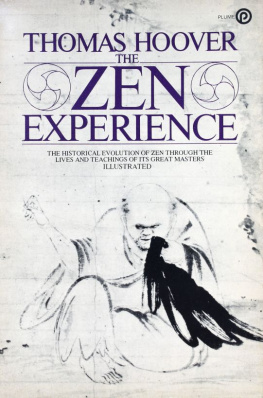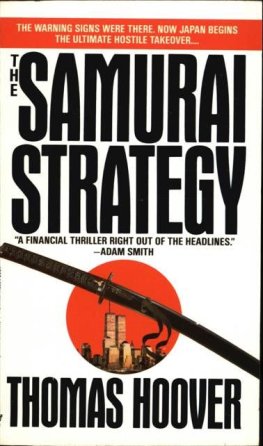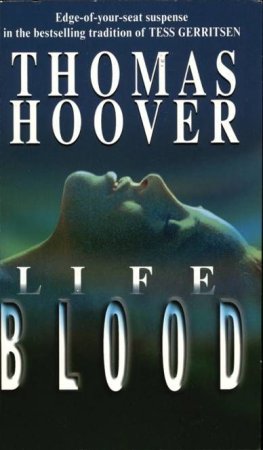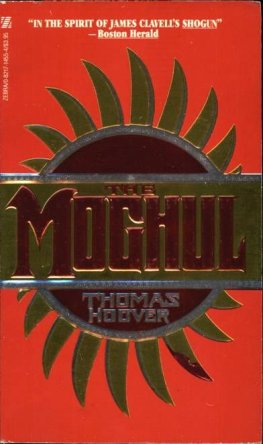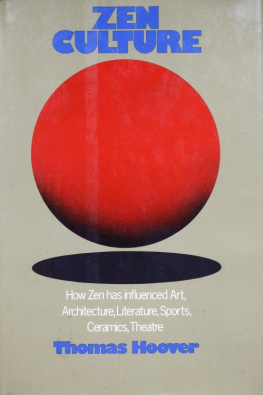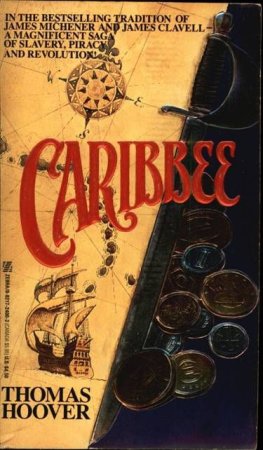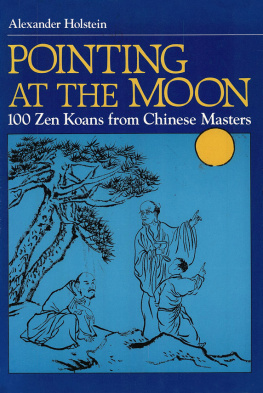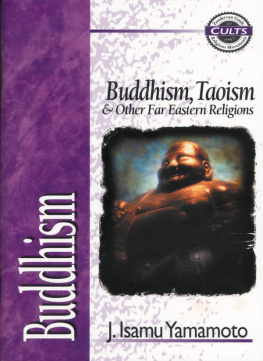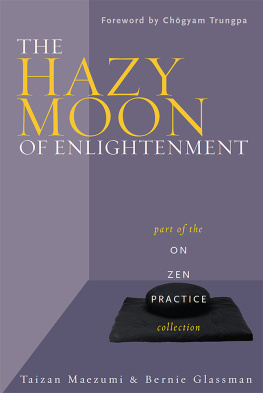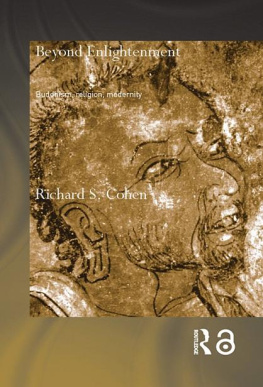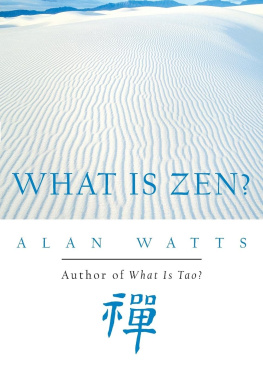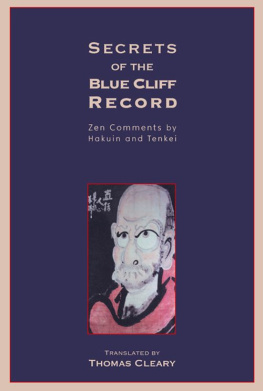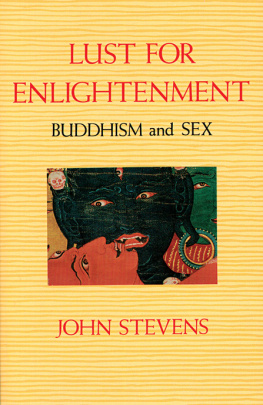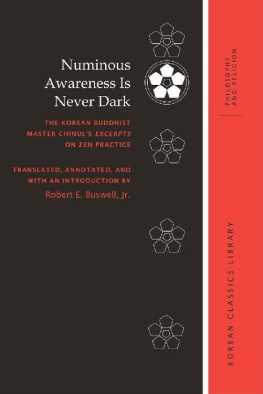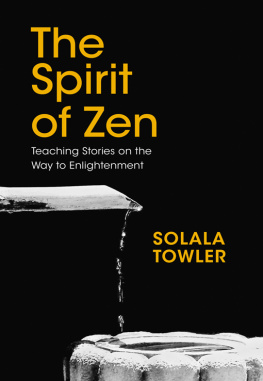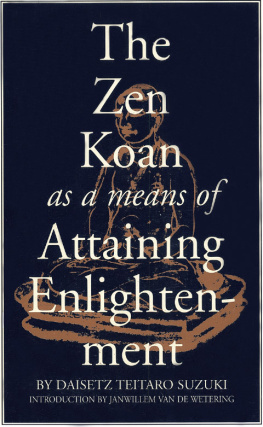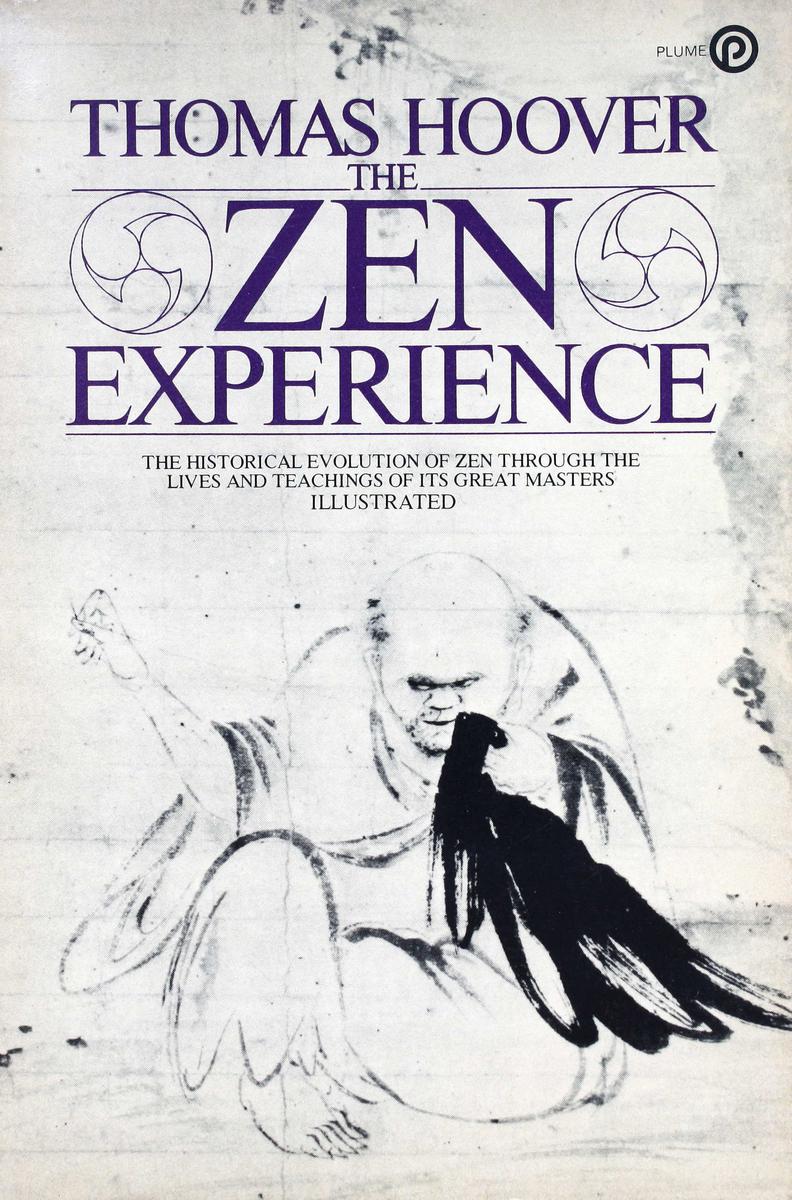
THE ZEN EXPERIENCE
(New American Library,1980)
*
The best history of Zen everwritten.
Library Journal
*
The truth of Zen has always resided inindividual experience rather than in theoretical writings. To givethe modern reader access to understanding of this truth, THE ZENEXPERIENCE illumines Zen as it was created and shaped by thepersonalities, perceptions, and actions of its masters over thecenturies.
Beginning with the twin roots of Zen inIndian Buddhism and Chinese Taoism, we follow it through itsinitial flowering in China under the First Patriarch Bodhidharma;its division into schools of gradual and sudden enlightenmentunder Shen-hsui and Shen-hui; the ushering in of its golden age byHui-neng; the development of shock enlightenment by Ma-tsu; itspoetic greatness in the person of Han-shan; the perfection of theuse of the koan by Ta-hui; the migration of Zen to Japan and itsextraordinary growth there under a succession of towering Japanesespiritual leaders.
Rich in historical background, vivid inrevealing anecdote and memorable quotation, this long-needed worksucceeds admirably in taking Zen from the library shelves andrestoring its living, human form.
*
TAGS: Zen History, Buddhism, ZenBuddhism, Zen History, Seng-Chao, Tao-sheng, Lao Tzu, Chuang Tzu,Kuo Hsiang, Nagarjuna, Seng-chao, Tao-Sheng, Bodhidharma, Huiko,Seng-Tsan, Tao-hsin, Fa-jung, Hung-jen, Shen-hsiu, Hui- neng,Ma-tsu, Huai-hai, Nanchuan, Chao-Chou, Pang, Han-shan, Huang-po,Lin-Chi, Rinzai, Soto, Tung-shan, Tsao-shan, Kuei-shan, Yun-men,Fa-yen, Ta-hui, Eisai, Dogen, Hakuin
*
BOOKS BY THOMAS HOOVER
*
Nonfiction
*
Zen Culture
The Zen Experience
*
Fiction
*
The Moghul
Caribbee
The Samurai Strategy
Project Daedalus
Project Cyclops
Life Blood
Syndrome
The Touchdown Gene
*
Also see www.thomashoover.info
*
*
The
Zen
Experience
*
Thomas Hoover
Smashwords Edition
*
Copyright 1980 by Thomas Hoover
*
Reissued by arrangement with Penguin GroupNew York, New York. First NAL edition, March, 1980.
Print ISBN 0-452-25228-8
*
*
PERMISSIONS
*
Selections from Zen and Zen Classics, Vols.I and II, by R. H. Blyth (Tokyo: The Hokuseido Press, copyright 1960, 1964 by R. H. Blyth, copyright 1978 by Frederick Franck),reprinted by permission of Joan Daves.
Selections from Cold Mountain by Han-shan,Burton Watson, trans. (New York: Columbia University Press, 1970),reprinted by permission of publisher.
Selections from The Recorded Sayings ofLayman Pang, Ruth Fuller Sasaki et al., trans. (New York: JohnWeatherhill), reprinted by permission of publisher.
Selections from Anthology of ChineseLiterature, Cyril Birch, ed., Gary Snyder, trans. (New York: GrovePress, copyright 1965 by Grove Press), reprinted by permission ofpublisher.
Selections from Tao: A New Way of Thinkingby Chang Chung-yuan, (New York: Harper & Row, PerennialLibrary, copyright 1975 by Chang Chung-yuan), reprinted bypermission of publisher.
Selection from A History of Zen Buddhism byHeinrich S. J. Dumoulin, Paul Peachey, trans. (New York: PantheonBooks, 1962), reprinted by permission of publisher.
Selection by Ikkyu from Some JapanesePortraits by Donald Keene (Tokyo: Kodansha International, 1979),reprinted by permission of author.
Selections from Essays in Zen Buddhism by D.T. Suzuki (New York: Grove Press), reprinted by permission ofpublisher.
Selection from The Sutra of Hui-neng, Priceand Wong, trans. (Boulder: Shambala Publications), reprinted bypermission of publisher.
Selections from The Platform Sutra of theSixth Patriarch, Philip Yamplosky, trans. (New York: ColumbiaUniversity Press), reprinted by permission of publisher.
Selections from The Zen Master Hakuin byPhilip Yamplosky (New York: Columbia University Press, 1971),reprinted by permission of publisher.
Selections from The Golden Age of Zen byJohn C. H. Wu (Taipei, Taiwan: Hwakang Book Store), reprinted bypermission of author.
Selections from The Zen Teaching of the HuiHai on Sudden Illumination by John Blofeld (New York: SamuelWeiser, 1972), reprinjted by permission of publisher.
Selections from Zen Master Dogen by YohoYukoi (New York: John Weatherhill), reprinted by permission ofpublisher.
Selections from Original Teachings of Ch'anBuddhism by Chang Chung-yuan (New York: Vintage, 1969), reprintedby permission of publisher.
Selections from Swampland Flowers byChristopher Cleary (New York: Grove Press, copyright 1977 byChristopher Cleary), reprinted by permission of publisher.
Selections from The Zen Teaching of Huang Poon the Transmission of Mind by John Blofeld (New York: Grove Press,copyright 1958 by John Blofeld), reprinted by permission ofpublisher.
Selections from Zen-Man Ikkyu, adissertation by John Sanford, University of North Carolina, ChapelHill, reprinted by permission of author.
Selections from Zen is Eternal Life by RoshiJiyu-Kennett (Dharma Publishing, copyright 1976 by RoshiJiyu-Kennett), reprinted by permission of author).
*
*
ACKNOWLEDGMENTS
*
Heartfelt thanks go to Dr. Philip Yampolskyof Columbia University, who reviewed the manuscript in draft andclarified many points of fact and interpretation. I also amindebted to the works of a number of Zen interpreters for the West,including D. T. Suzuki, John Blofeld, Chang Chung-yuan, and CharlesLuk. In cases where this finger pointing at the moon mistakenlyaims astray, I alone am responsible.
*
*
CONTENTS
*
PREFACE TO ZEN
Taoism: The Way to Zen
Lao Tzu
Chuang Tzu
Kuo Hsiang: A Neo-Taoist
The Seven Sages of the Bamboo Grove
The Buddhist Roots of Zen
The Buddha
Nagarjuna
Kumarajiva
Seng-chao
Tao-sheng
The Synthesis
PART I. THE EARLY MASTERS
1. Bodhidharma: First Patriarch of Zen
2. Hui-k'o: Second Patriarch of Zen
3. Seng-Ts'an, Tao-hsin, Fa-jung, andHung-jen: Four Early Masters
4. Shen-hsiu and Shen-hui: "Gradual" and
"Sudden" Masters
5. Hui-neng: Sixth Patriarch and Father ofModern Zen
PART II. THE GOLDEN AGE OF ZEN
6. Ma-tsu: Originator of "Shock"Enlightenment
7. Huai-hai: Father of Monastic Ch'an
8. Nan-ch'uan and Chao-chou: Masters of theIrrational
9. P'ang and Han-shan: Layman and Poet
10. Huang-po: Master of the UniversalMind
PART III. SECTARIANISM AND THE KOAN
11. Lin-chi: Founder of Rinzai Zen
12. Tung-shan and Ts'ao-shan: Founders ofSoto Zen
13. Kuei-shan, Yun-men, and Fa-yen: ThreeMinor Houses
14. Ta-hui: Master of the Koan
PART IV. ZEN IN JAPAN
15. Eisai: The First Japanese Master
16. Dogen: Father of Japanese Soto Zen
17. Ikkyu: Zen Eccentric
18. Hakuin: Japanese Master of the Koan
19. Reflections
NOTES
BIBLIOGRAPHY
*
*
*
THE ZEN EXPERIENCE
*
*
The sole aim of Zen is to enable one tounderstand, realize, and perfect his own mind.
Garma C. C. Chang
*
PREFACE TO ZEN
*
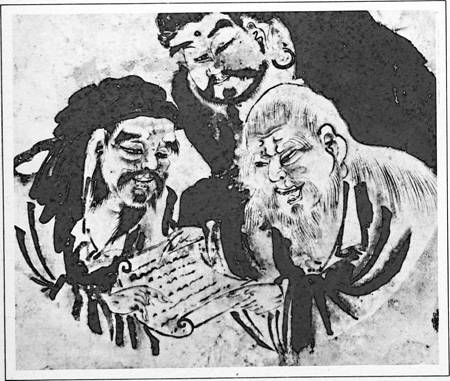
Lao Tzu, Buddha, Confucius
*
Some call it "seeing," some call it"knowing," and some describe it in religious terms. Whatever thename, it is our reach for a new level of consciousness. Of the manyforms this search has taken, perhaps the most intriguing is Zen.Growing out of the wisdom of China, India, and Japan, Zen became apowerful movement to explore the lesser-known reaches of the humanmind. Today Zen has come westward, where we are rediscoveringmodern significance in its ancient insights. This book is anattempt to encounter Zen in its purest form, by returning to thegreatest Zen masters.
Next page
